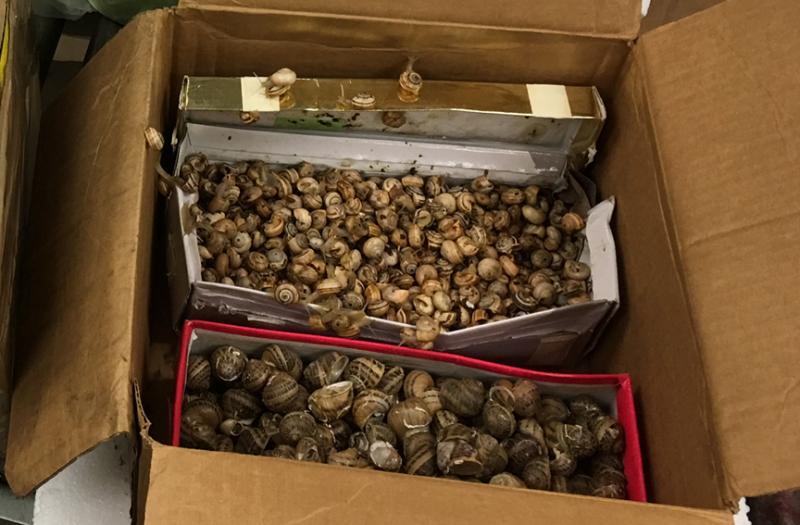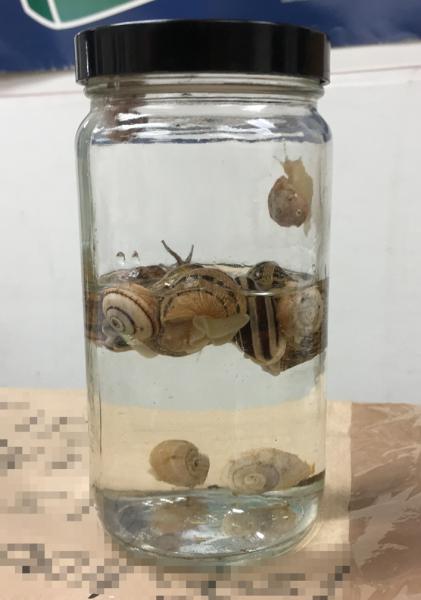PHILADELPHIA – Snails have the unenviable reputation for being very slow creatures. Fortunately, for American agriculture, seven pounds of live invasive snails from Italy could not speed by U.S. Customs and Border Protection (CBP) agriculture specialists recently in Philadelphia.

seven pounds of live invasive snails in
an express international shipment.
While inspecting express international parcels near Philadelphia International Airport June 2, CBP agriculture specialists found seven pounds of live snails in a parcel manifested as “shoes and honey.” CBP quarantined the shipment and submitted specimens to the local U.S. Department of Agriculture (USDA) entomologist for identification.
On June 6, the USDA entomologist identified the snail specimens as Eobania vermiculata (Muller) (Helicidae), a terrestrial snail also known as the "chocolate-banded snail." The chocolate-banded snail is an invasive species native to the Mediterranean region. According to the Texas Invasive Species Institute, the chocolate-banded snail poses a significant threat to vineyards, garden plants and agriculture crops.
“Seven pounds of live snails is a unique find, and an example of the vigilance demonstrated by Customs and Border Protection agriculture specialists in protecting our nation’s agricultural industries,” said Shawn Polley, Acting CBP Port Director for the Area Port of Philadelphia. “CBP agriculture specialists are our nation’s frontline agriculture protectors and they take their job very seriously.”
CBP seized the shipment, which was destined to an address in Hartford, Conn. Additionally, CBP issued a violation to the consignee for the shipment being mismanifested as shoes and honey.
“Customs and Border Protection enforces more than 400 laws on travelers and goods entering the United States at our nation’s 328 ports of entry every day,” said Casey Owen Durst, CBP Director, Baltimore Field Operations. “CBP’s border enforcement authority is one way in which we help to keep our communities safe and protect American business.”

chocolate-banded snails
that CBP recently seized.
CBP agriculture specialists have extensive training and experience in the biological sciences and agricultural inspection. On a typical day nationally, they inspect over 1 million people as well as air, land and sea cargo imported to the United States and intercept 4,638 prohibited meat, plant materials or animal products, including 404 agriculture pests and diseases.
Learn more about CBP’s agriculture protection mission.
CBP’s Office of Field Operations
Almost a million times each day, CBP officers welcome international travelers into the U.S. In screening both foreign visitors and returning U.S. citizens, CBP uses a variety of techniques to intercept narcotics, unreported currency, weapons, prohibited agriculture, and other illicit products, and to assure that global tourism remains safe and strong. Learn more about what CBP did during "A Typical Day" in 2016.
CBP's border security mission is led at ports of entry by CBP officers from the Office of Field Operations. Please visit CBP Ports of Entry to learn more about how CBP’s Office of Field Operations secures our nation’s borders.
Learn more about CBP at CBP.gov.


